Cancer care continuum: Prevention > Detection > Diagnosis > Treatment > Survivorship
Diagnosis is the third phase in the cancer care continuum. This phase focuses on the pathology of cancer. Research interests from our faculty members lies around biomarkers that may put specific sub-populations at a greater risk for certain cancers.
Research topics
- Biomarkers
- Pathology
Child asthma exacerbation: Role of caregiver risk beliefs
Faculty Involved: Erika Waters, Jean Hunleth
Drs. Waters, Hunleth, and colleagues will used a mixed methods research design to gain in-depth understanding of the psychological and social factors that shape the decision making process that caregivers use to care for their asthmatic children. This project will provide evidence-based behavioral strategies to improve the lives of 6.2 million children who are affected by asthma.
Chronic Diseases Related to Obesity
Faculty involved: Su-Hsin Chang, Graham Colditz
The project will study obesity, the coexistence of obesity-related chronic diseases, and mortality in the United States in terms of life expectancy and lifetime healthcare.
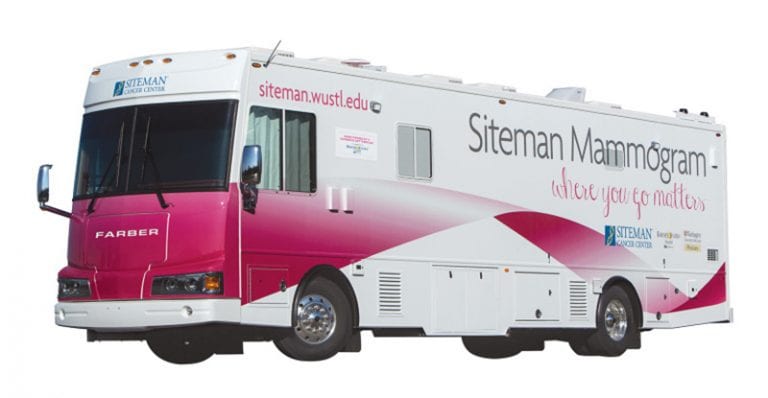
Community Outreach: Mobile Mammography Van
Faculty involved: Bettina Drake, Graham Colditz, Su-Hsin Chang
This project worked towards increasing and providing effective mammography screening for women in the St. Louis area.
Disparities in Adherence to Adjuvant Therapy for DCIS and Outcomes
Faculty involved: Ying Liu
Ying Liu, MD, PhD, assistant professor of surgery, has received a three-year, research scholar grant from the American Cancer Society to study disparities associated wtih ductal carcinoma in situ (DCIS).
Improving Rural Colon Cancer Screening
Faculty involved: Aimee James, Esther Lu, Graham Colditz, Jean Hunleth
This project will address colorectal cancer mortality rates in rural Southern Illinois by improving the screening process and follow-up for patients who have a positive fecal blood test (FOBT, FIT).
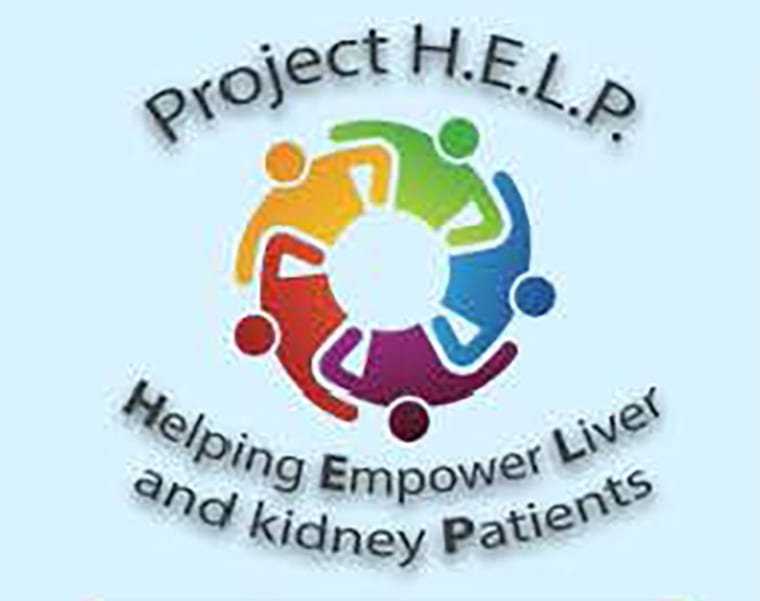
Informing Kidney Patients of Treatment Options
Faculty involved: Mary Politi
This project will develop tailored, patient-centered education materials to facilitate treatment decisions in patients with Hepatitis C infection and chronic kidney disease.

Prevention of Lower Urinary Tract Symptoms (PLUS) Research Network
Faculty involved: Aimee James, Siobhan Sutcliffe
The PLUS Research Network is a multi-site network designed to develop the evidence base for future clinical trials to prevent the development and progression of lower urinary tract symptoms in women and girls. Current projects include a qualitative focus group study, the development of new instruments to measure bladder health, systematic reviews of the literature, and analyses of existing study data to better understand bladder health and factors that contribute to the development and progression of lower urinary tract symptoms.
Program Evaluation of Community Engagement
Faculty involved: Aimee James, Graham Colditz, Vetta Sanders Thompson, Bettina Drake, Esther Lu, Jean Hunleth
Community-based participatory research (CBPR) helps give community members voice in academic research. These projects evaluated current and past CBPR projects to discovery future best practices.
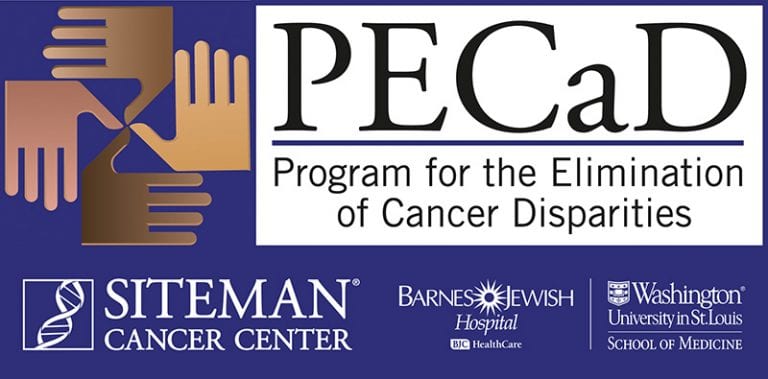
Program for the Elimination of Cancer Disparities (PECaD)
Faculty involved: Graham Colditz, Aimee James, Bettina Drake, Vetta Sanders Thompson
The mission of Siteman Cancer Center’s Program for the Elimination of Cancer Disparities (PECaD) is to create a national model for eliminating local and regional disparities in cancer education, prevention and treatment. Through a community advisory committee and community partnerships, PECaD works with community representatives to find solutions that reduce disparities.
Prostate Cancer Prospective Cohort
Faculty involved: Bettina Drake, Graham Colditz
The long-term goal of this collaboration between Dr. Drake and The St. Louis Mens Group Against Cancer is to be able to identify patients with increased risk for dying of prostate cancer while they are still treatable.
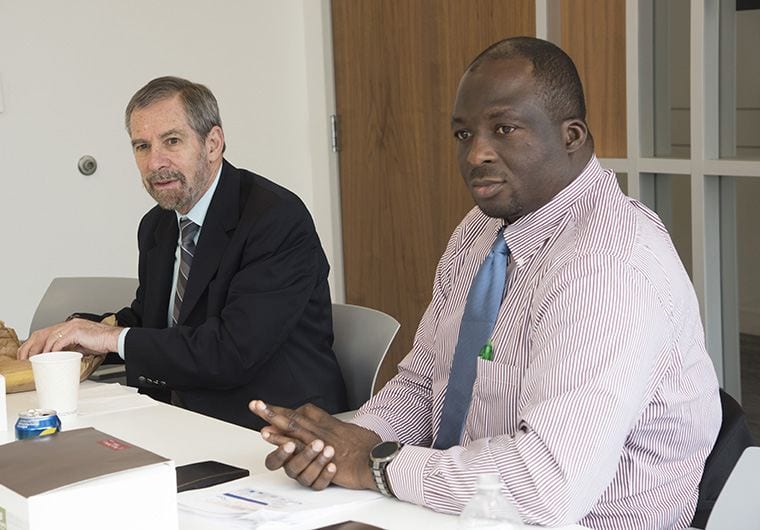
RANK Pathway and Mammographic Breast Density
Faculty involved: Adetunji Toriola, Graham Colditz, Rosy Luo
A very dense breast on mammogram is one of the strongest risk factors for breast cancer, and many women in the United States have extremely dense breasts. There is, however, very limited knowledge on how to modify breast density to reduce breast cancer risk

Supporting Decisions About Cancer Clinical Trials in Rural Cancer Centers
Faculty involved: Mary Politi
This project will bring evidence-based decision tools to rural communities and attempt to support rural cancer patients’ participation in clinical trials.
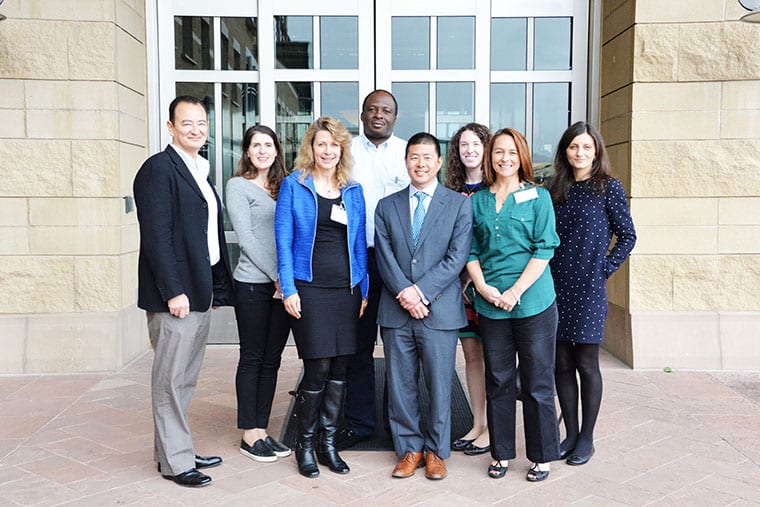
The ColoCare Study
Faculty involved: Adetunji Toriola, Graham Colditz
The ColoCare Study follows a cohort of men and women who have been newly diagnosed with colorectal cancer (stages I-IV). This project’s main interest is in quality-of-life and in rates of cancer recurrence and death.